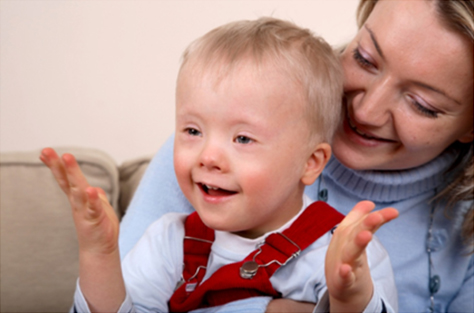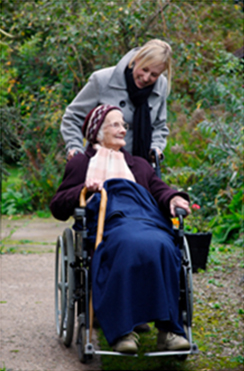NHS Lothian recognises the invaluable role that unpaid carers make to helping keep someone well or looking after them when they are unwell.
A carer is someone who, without payment, provides help and support to a wife, husband, partner, son, daughter, parent, relative, friend or neighbour, who could not manage without their help. The person may need extra help because of their age, or because they have a physical or mental illness, addiction or disability. They may not even live with the person they care for.

Carers can be:
- a young person under 18 looking after a parent/brother/sister;
- looking after a relative with a mental illness or physical disability;
- the parent of a child with special needs;
- a friend or relative looking after an older person
Carers do not have to:
- live with the person they care for
- be the only carer
- be related to the person they care for
Unpaid carers often do not see themselves as carers for a number of reasons for example because they may be a relative, partner or friend of the person they care for; or perhaps because they care for someone with a deteriorating condition and the care needs have increased gradually.
NHS Lothian staff can play a crucial role in helping carers to recognise themselves as a carer, and then signpost them to the list of organisations on our Supporting Organisations page where they can get support including information and advice, carer training, advocacy and counselling.
Carers provide a wide range of health and social care interventions to the person they care for, i.e. personal care, managing medication and dietary requirements.
NHS Lothian recognises the role of carers and the invaluable support they provide to the person they care for.
Our staff aim to work with carers as equal partners in delivering the required care to the cared for person, and to support carers by ensuring they understand the treatment, medication, equipment, personal care needs of their care, how these will be met and what role they will play.
Based on this knowledge carers can then inform discussions about care packages by communicating decisions about their own ability to provide care, and the information they have regarding the care for person and their condition.
Carer’s Support
The needs of the carer should be considered separately from those of the cared for person, as these may differ.
Carers who provide support on a regular basis to a family member, friend or neighbour who has any illness, disability or is frail due to being older are eligible to have an assessment (carer support plan) or a consideration of their support needs as a carer.
The carer support plan gives the carer an opportunity to talk about the support and care they provide; how this affects their own physical and emotional health and family life; any concerns, worries or difficulties they have; and the support they need to continue caring. Staff (a nurse, a doctor, an occupational therapist, a physiotherapist) can signpost carers to their local carers centre or social work department who can start this conversation around their needs as a carer.
Supporting carers through hospital discharge
Going into and coming out of hospital can be an uncertain and sometimes emotional experience for families. For some, it is a life changing event requiring major adjustments afterward.
Many carers feel insufficiently involved & unsupported in the discharge process. However, we know that if hospital discharge is well-planned and the right services put in place then there is a much greater likelihood of the cared for person remaining at home with carer support.
This means identifying the carer at an early stage and ensuring that the carer is involved in discussions regarding the care plan and have a clear understanding of the person they care for diagnosis, what they can expect and an understanding of their role as carer and the support they might have to provide.
The Carers (Scotland) Act 2016 states that health boards have a duty to involve carers, including young carers in discharge from hospital when:
• The person being discharged is likely to require care following discharge
• The carer can be identified without delay
The Act also means that carers have the right to an adult carer support plan or young carer statement.
An adult carer support plan or young carer statement starts with a conversation where you discuss your caring role and what is important to you in your life. It helps plan what could help you work towards your goals.
Further information is available in the What to expect when a person you care for is discharged from hospital leaflet.
There is a team of carer discharge support workers who can help you during the discharge process if that would be helpful:
- East Lothian – Carers of East Lothian. 0131 665 0135
- Edinburgh – Edinburgh Carer Support Team. Tel 0131 536 3371
- Midlothian – VOCAL Midlothian. Tel 0131 663 6869
- West Lothian – Carers of West Lothian. Tel 01506 448000
Patient confidentiality: what does this mean? How does it affect what can be shared with you?
Patient confidentiality means healthcare staff have a duty to keep information about the patient and their care private. If staff shared information about a patient without their agreement, they would have ignored that duty and could even possibly lose their job. The most important thing for healthcare staff is that the patient has agreed that information about them can be shared with you (their carer).

Many carers and patients do not know that the patient must agree before any information can be shared so it is really important that this is discussed openly between everyone involved.
Healthcare staff have a duty to keep patient information confidential. However, staff also know that sharing information can be important to the health and wellbeing of both the patient and you. Staff are aware that it makes things easier for you and the patient if you are included in discussions and decisions about the patient’s care. These can be about practical, financial or personal things. So you can see that this can be a difficult situation for both staff and carers and why it helps to talk about it with the healthcare staff.
Fuller information on confidentiality and carers can be found on the Supporting Carers: Confidentiality page.














